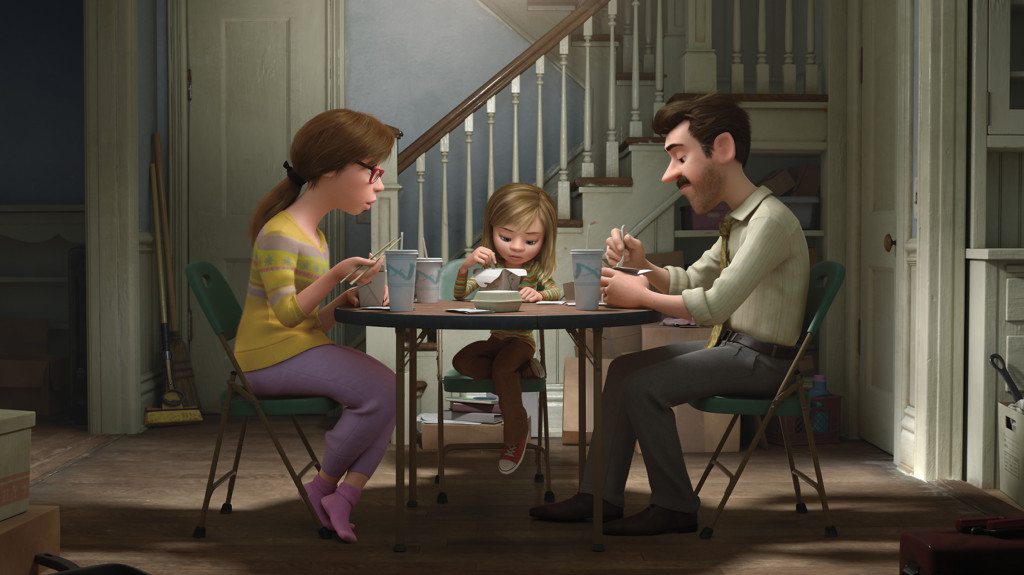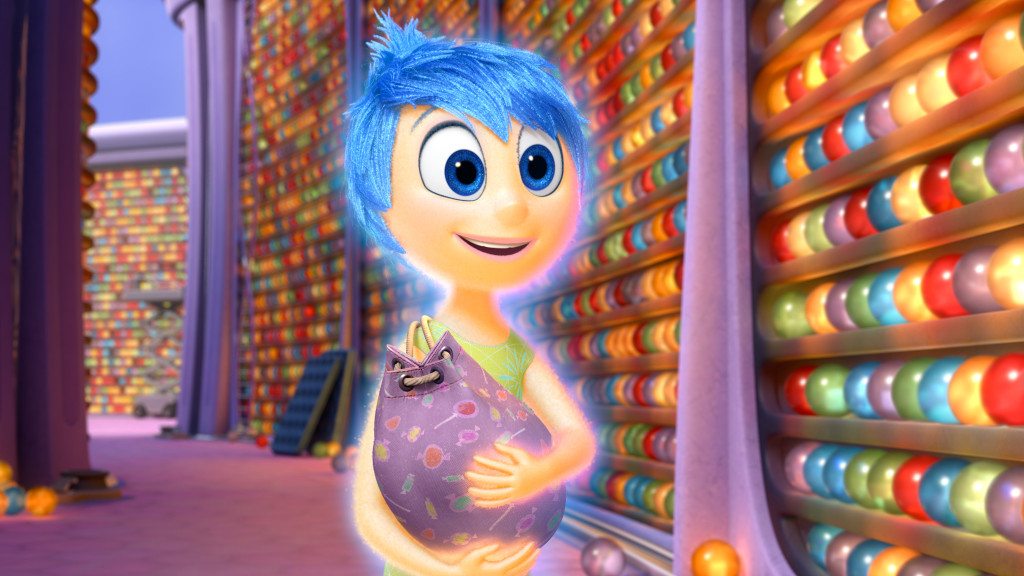Inside Out
[dropcap]E[/dropcap]ven by the standards of Pixar, the lean of decline was always waiting inevitably just around the corner. Following on from 2010’s Toy Story 3 and a 15 year run of seminal pictures, salvaged projects, underwhelming sequels and even prequels saw the studio churning out features that simply weren’t up to the scratch that is to be expected of them. After a year long hiatus to restructure and compose themselves, the animation studio that changed the world have returned with a vengeance to prove that the engine of their proverbial majesty and imagination hasn’t run out of steam – and this is one hell of a comeback.
Not only is Inside Out a surprisingly imaginative, funny and moving experience, but it is arguably soon to be set in stone amongst the studios greatest achievements. Following in the spirit of Pete Docter’s Monsters Inc., the space of a child’s mind is reinterpreted as an industrial, nearly bureaucratic world. The rules are established and then broken down, displaying a new equilibrium of harmony that works in tandem with the ‘real world’ outside. Here that is applied to the life of a young girl, Riley (Dias), as her maturation into a young adult is made flesh through the chaos unfolding in her mind in the form of her controlling emotions.
But here’s the kicker; this story that revolves around emotions as figurative manifestations is also one that allows its themes to run the course of its plot. One of the core principle assumptions of any Pixar film is that these people know exactly where to hit you when the time comes, and to that end Inside Out is probably one of the most bare and honest adherences to this formula that practically establishes itself as a statement of intent for the studio. The greatest works of any artist are the ones that show you the souls of their creators, and for this Pete Docter and co. have conceived of a space emblematic of the literal dream factory that Pixar has become known as: with emotions as controllers manipulating the hearts and minds of its audiences. Though it does expose the machine of the creators thought processes and their intentions as Hollywood storytellers, it’s hard to be cynical about a subject matter that’s as humble as this.
The honest thing about the film is that there are two plots evolving beside each other of very different intents and genre. One of which is the wiz-bang animated extravaganza of the inner space where the emotions run about after the mcguffins in a magical world. While in the other a far simpler tale is unfolding, a coming-of-age drama following the turmoil of a child coming to terms with both herself and the world around her as everything she’s ever known is changing before her very eyes. You follow and share her experiences though the unfathomable layer of depth of the inner space that informs it. Centrepieces unfold internally that make even the smallest of character motivations on the outside feel like cataclysmic failures or monolithic triumphs.
Not only is Inside Out a surprisingly imaginative, funny and moving experience, but it is arguably soon to be set in stone amongst the studios greatest achievements
Beyond the resonating emotional weight that the film practically wallows in for a majority of its third act (though never a detriment), the work from the performers are all outstanding with many simply playing to their established traits in other work. Poehler continues to establish herself as a stern leading female role with control freak Joy, while The Office regulars Smith and Kaling’s voices suit their character mannerisms perfectly, as do Hader and Black. All the while Lane and MacLachlan are solid in their pivotal roles as Riley’s parents. As emotions their traits do define them, but character is infused into them via these performers and a fast as lightning screenplay with wit to spare at any given moment.
The vast imagination and inspired ingenuity of this world is only strengthened by an incredibly intricate visual design and energy that compliments the written word marvellously. Even journeys into the abstract and jokes at the expense of everyday topics (including a killer gag regarding the difference between facts and opinions) manage to strike that familiar Pixar formula of jokes that can cater to both the young and the old whilst also meeting somewhere in between.
Inside Out is essentially a story of change and acceptance. The difficulties experienced in childhood are shown to be an essential factor of our developments into adults, no matter how small or petty they may seem at the time. As we grow to handle new and daunting experiences in our lives our emotions must become more complex in order to deal with them head on. Sometimes a balance must be struck to suit a given situation, while looking at something from another angle could hold the key to changing it. We may leave childhood behind but their significance will always remain, even in the darkest of periods when life feels like it’s spinning in the opposite direction to what you want as opposed to what you might need.
It’s one of the most significant pictures in the Pixar canon to date, and deals with its dense issues in the most suitable of ways; through joy, sadness, anger, disgust and fear. All of which add up to something far greater than the sum of its parts.
Director: Pete Docter
Cast: Amy Poehler, Bill Hader, Lewis Black, Mindy Kaling, Phyllis Smith
Length: 101 minutes
Country: USA




Comments